Norway rearming in Arctic to face new security landscape
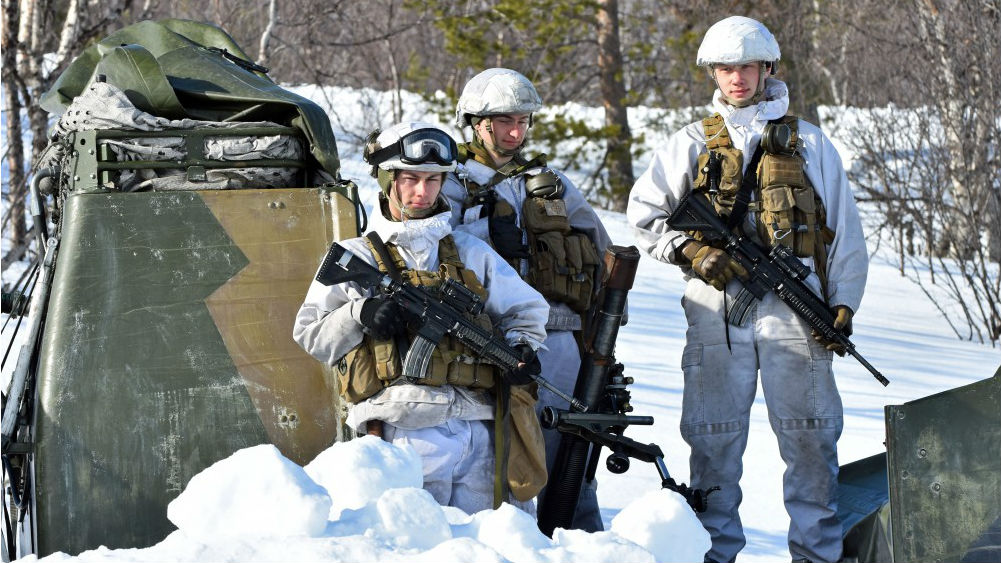
The army is well underway with establishing a new Cavalry Battalion, Home Guard and a Ranger Company in Norway’s northernmost region bordering Russia’s heavy militarized Kola Peninsula.
“We are building up the army in Finnmark. The forces are now gathered under one command; Finnmark Land Defense,” says Minister of Defense Frank Bakke-Jenssen to the Barents Observer during an inspection at Porsangermoen, the world’s northernmost military Garrison at 70 degrees northern latitude.
“This will over time strengthen the army in Finnmark,” the Defense Minister elaborates.
He makes no secret of the fact that the new security landscape in Europe with Russia’s annexation of Crimea and a more unpredictable situation is the main driver behind Norway’s rearmament of Finnmark.
“We do not consider Russia a military threat to Norway, but we have a more unpredictable security picture,” Bakke-Jenssen says.
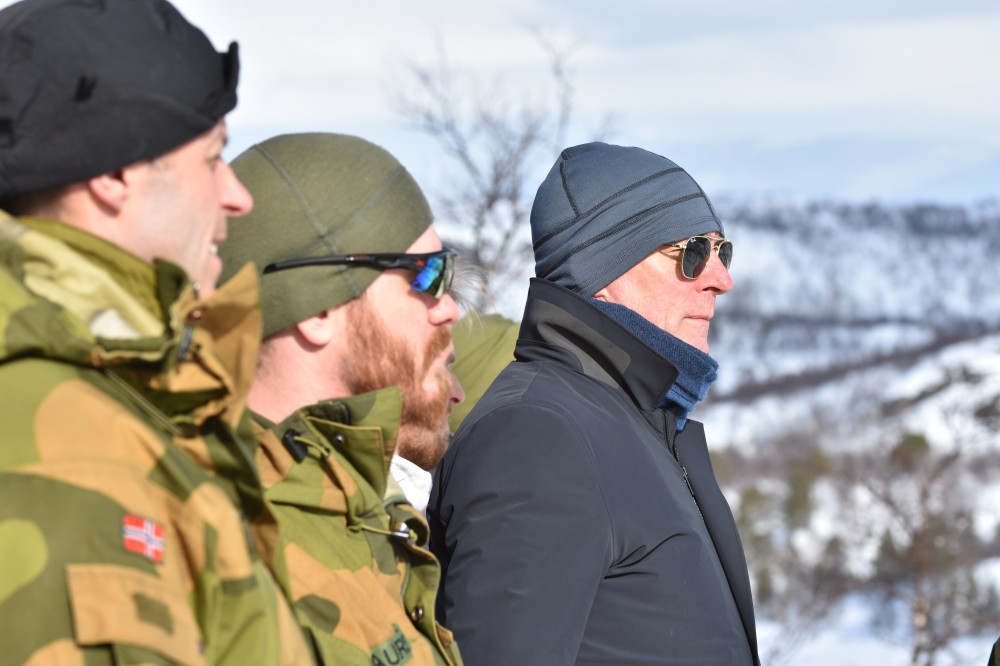
Hundreds of soldiers
The military camp in Porsanger was for the most part abolished after the end of the Cold War. This winter, the camp is again filled with young soldiers training winter warfare, wearing white camouflage uniforms. And more are to come. Some 150 soldiers are in the camp now; the number will grow to about 400, a fully-fledged cavalry battalion by 2022.
“For the time being we are building up a new Norwegian battalion size unit and we have started this year by establishing a company level unit like what you can see around here now,” says head of Finnmark Land Defense, Colonel Jørn Erik Berntsen.
Next to the garrison is Halkavarre shooting range, the largest in Norway. Here, both Norwegian and NATO allies are training.
With all new Norwegian soldiers coming to Porsangermoen, the allied training centre will be moved to Troms, further southwest, where both British, American and Dutch military forces have exercised cold climate maneuvers this winter.
Colonel Berntsen, though, still hopes Porsangermoen can facilitate for soldiers from NATO countries also in the future.
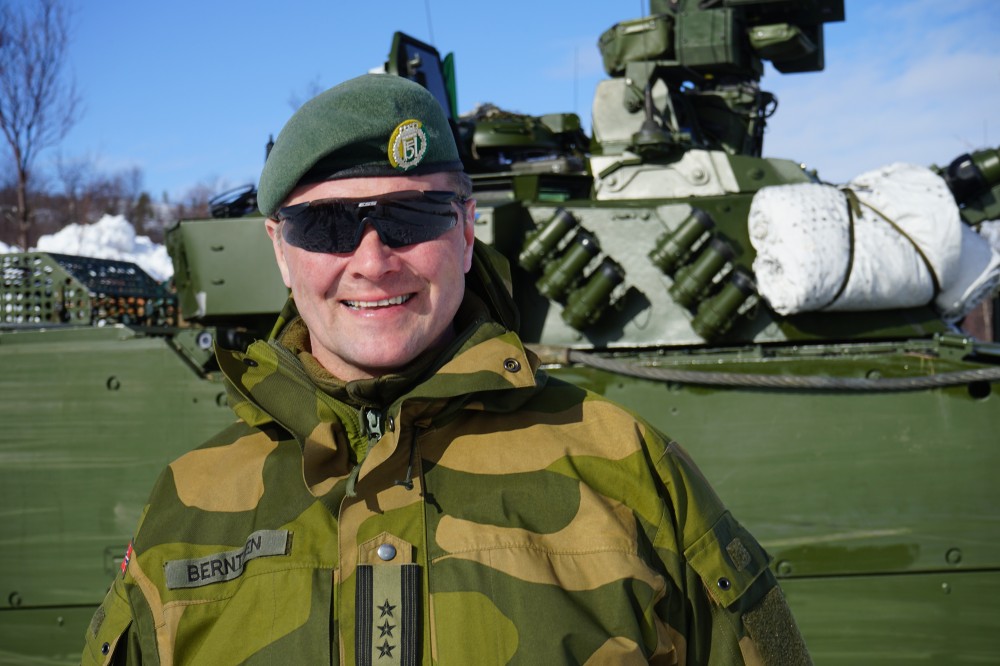
From Porsanger military camp, the distance to Banak airport is about 20 kilometers. Banak is the northernmost airstrip in Norway to accommodate F-16 fighter jets, like during NATO’s large-scale exercise Trident Juncture last fall when the fighter jets were frequently scrambled to meet Russian bombers north of Norwegian airspace over the Barents Sea.
Last week, Russia’s Northern Fleet for the first time exercised its bastion defense with both naval vessels and aircraft northwest of the Lofoten Islands, some 100 nautical miles off the coast of Northern Norway. During the drill, live firing with anti-aircraft missiles took place, the press-service of the Northern Fleet informs.
Is Finnmark vulnerable?
Last September, Norway’s former land forces commander and intelligence chief, Lieutenant General Kjell Grandhagen, warned that in case of a bigger conflict it is quite likely that Russian armed forces would initiate a ground operation against Norway’s northernmost region, the Barents Observer reported.
“Imagine for a second, that you are the commander of Russia’s northern military district responsible for the defense of Russia’s most valuable assets. You look at the map and you realize that your key bases are located within artillery range from what you would label NATO territory. Could you live with that? Well, I couldn’t,” Grannhagen said in a speech at a army summit in Oslo.
He added that a Russian ground operation against Finnmark region consequently must not be excluded.
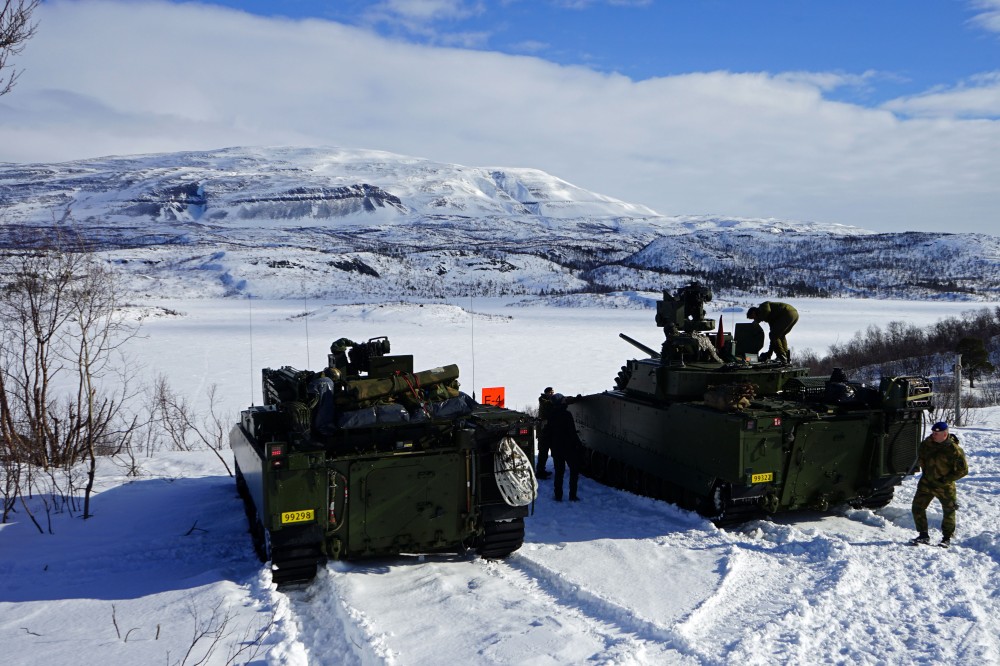
Aimed at being ready for combat on shorter notice, Finnmark Land Defense is also adding a new Ranger Company to the Garrison in Sør-Varanger, just on the border to Russia.
The 200 soldiers strong unit will be armed with light anti-aircraft and anti-armor weapons and is in charge of delaying a potential territorial violation along Norway’s 198 kilometers long border to Russia in the north.
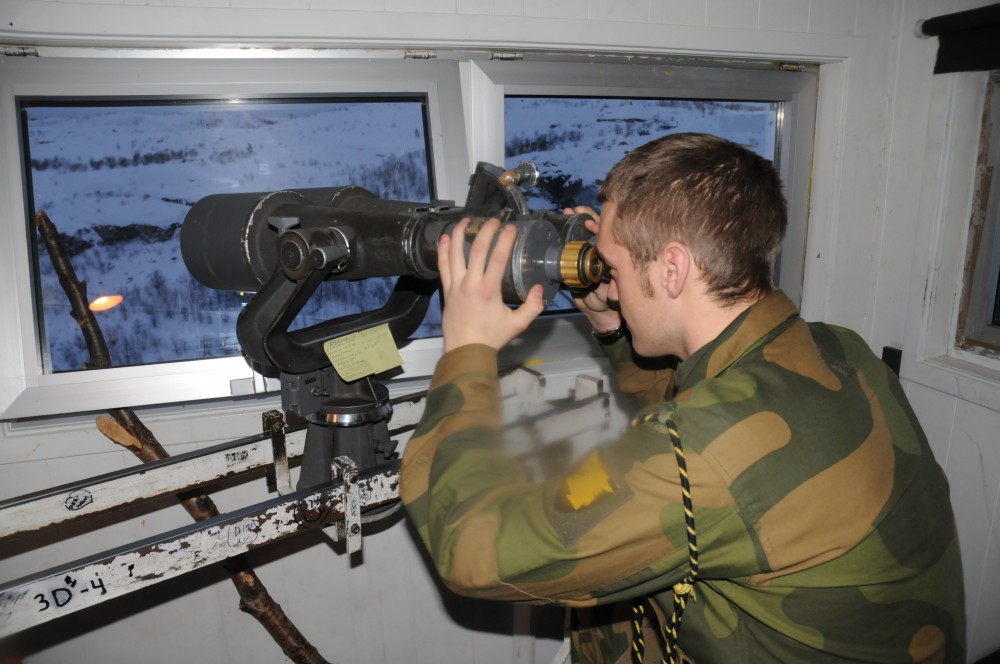
From before, military border guards at the Garrison of Sør-Varanger with its military camp outside Kirkenes and two border stations in charge of surveillance and monitoring the borderline.
Also the Home Guard will be strengthened in Finnmark, and Home Guard forces in other parts of Norway will be equipped and trained for fast transfer to Finnmark in case that should be needed. The Home Guard and the Army will be co-located with the army in Finnmark “to ensure uniformed planning and management of land operations,” the Defense Ministry has previously said.
Related stories from around the North:
Canada: Canada’s 2019 budget slim on hard power Arctic commitments, experts say, Radio Canada International
Finland: Fighter jets flying low over Arctic Finland for military drill in northern Sweden, Yle News
Iceland: Iceland & UK sign agreement to boost security, defence cooperation, Eye on the Arctic
Norway: Russia, Norway talk Arctic GPS jamming in Oslo, The Independent Barents Observer
Russia: Russia says it held naval drill near Norwegian waters, The Independent Barents Observer
Sweden: Faced with Trump’s wavering support for NATO, Nordic nations stick together, The Independent Barents Observer
United States: U.S. must pay attention to growing China-Russia alliance in Arctic: expert, Alaska Public Media



